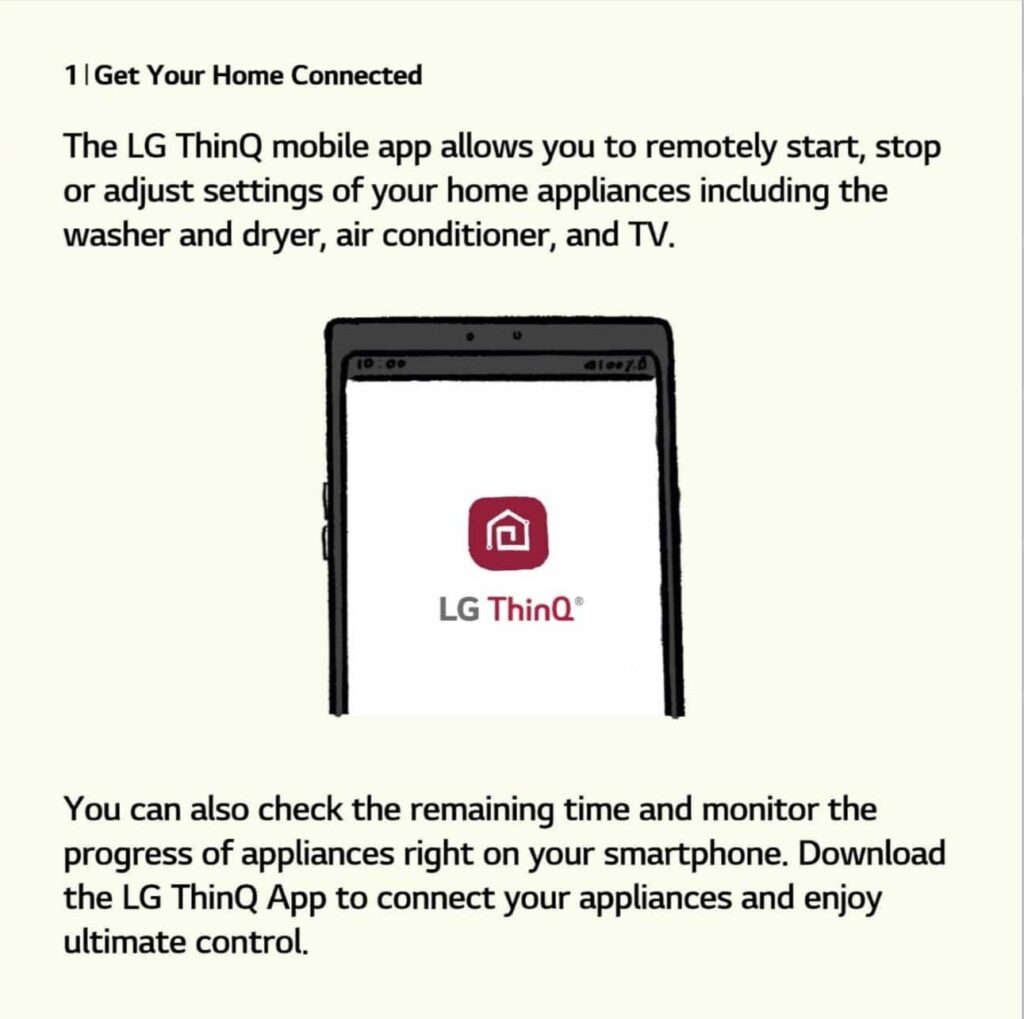The Impact of Smart Appliances on Your Energy Usage is a fascinating topic that revolutionizes how we interact with technology in our homes. As we integrate smart devices into our daily lives, understanding their influence on energy consumption becomes crucial. From smart thermostats to intelligent lighting systems, these appliances promise not only convenience but also the potential for significant energy savings, making them essential in our quest for efficiency.
Moreover, as households increasingly adopt these technologies, it’s important to explore how they can optimize energy usage while reducing costs and environmental impact. With the right choices, smart appliances can transform our energy habits, paving the way for a sustainable future.
In today’s fast-paced world, the importance of digital marketing cannot be overstated. As businesses strive to establish their online presence, understanding the various aspects of digital marketing is crucial. This article aims to delve into the many facets of digital marketing, its significance, and effective strategies that can lead to success.### What is Digital Marketing?Digital marketing refers to the promotion of products or services using digital channels, including the internet, social media, search engines, email, and mobile applications.
It encompasses a wide range of marketing activities that target consumers through digital means. Unlike traditional marketing, digital marketing allows businesses to reach a global audience, track user engagement, and measure the effectiveness of their marketing campaigns in real time.### The Evolution of MarketingMarketing has significantly evolved over the decades. In the past, businesses relied heavily on print media, television, and radio to reach their customers.
However, with the advent of the internet and technological advancements, the marketing landscape transformed. Digital marketing emerged as a powerful tool that not only broadens the reach but also provides more cost-effective solutions compared to traditional marketing methods.### Why is Digital Marketing Important?

1. Wider Reach
One of the primary benefits of digital marketing is the ability to reach a broader audience across various geographical locations. Businesses can target specific demographics and tailor their marketing efforts to meet the needs of different customer segments.
2. Cost-Effectiveness
Digital marketing is often more affordable than traditional advertising methods. Small businesses can leverage social media platforms and email marketing without breaking the bank.
3. Real-Time Analytics
Digital marketing provides businesses with real-time data and analytics, allowing them to track the performance of their campaigns. This data-driven approach enables marketers to make informed decisions and optimize their strategies accordingly.
4. Enhanced Engagement
Digital marketing facilitates direct interaction between businesses and their customers. Through social media channels, businesses can engage with their audience, respond to inquiries, and build relationships, leading to higher customer satisfaction.### Key Components of Digital Marketing
1. Search Engine Optimization ()
is the practice of optimizing a website to improve its visibility on search engine results pages (SERPs). By using relevant s, creating quality content, and enhancing the overall user experience, businesses can increase organic traffic to their site.
2. Content Marketing
Content is king in the digital marketing realm. Creating high-quality, relevant content not only attracts customers but also positions a brand as an industry authority. Content marketing can take various forms, including blogs, videos, infographics, and podcasts.
3. Social Media Marketing
Social media platforms like Facebook, Instagram, Twitter, and LinkedIn have become essential tools for businesses to connect with their audience. Social media marketing involves creating and sharing content to engage followers, promote products, and drive website traffic.
4. Email Marketing
Despite the rise of social media, email marketing remains a highly effective digital marketing strategy. It allows businesses to communicate directly with their customers, promote products or services, and share valuable content. Personalized email campaigns can significantly improve customer engagement and retention.
5. Pay-Per-Click Advertising (PPC)
PPC is a form of online advertising where businesses pay each time a user clicks on their ad. Platforms like Google Ads and Facebook Ads enable businesses to target specific audiences based on demographics, interests, and online behavior.
6. Affiliate Marketing
This performance-based marketing strategy involves partnering with individuals or organizations (affiliates) who promote a company’s products in exchange for a commission on sales generated through their marketing efforts.
7. Influencer Marketing
With the rise of social media influencers, businesses are increasingly collaborating with individuals who have a significant online following. Influencer marketing leverages the trust and credibility that influencers have built with their audience to promote products effectively.### Effective Digital Marketing Strategies
1. Define Your Target Audience
Understanding your audience is critical to the success of your digital marketing efforts. Conduct market research to identify demographics, interests, and pain points. Creating buyer personas can help tailor your marketing strategies to meet the needs of your target audience.
2. Create a Comprehensive Content Strategy
Develop a content calendar that Artikels the types of content you will produce, the platforms you will use, and the frequency of your posts. Ensure that your content is diverse, engaging, and provides value to your audience.
3. Utilize Best Practices
Conduct research to identify relevant s that your audience is searching for. Optimize your website’s structure, meta tags, and content to improve your chances of ranking higher on SERPs. Regularly update your content to keep it relevant and fresh.
4. Leverage Social Media
Choose the social media platforms that align with your brand and audience. Create a consistent posting schedule and engage with your followers through comments, messages, and interactive content like polls or quizzes.
5. Implement Email Campaigns
Build an email list by offering incentives such as discounts or exclusive content. Design visually appealing and mobile-friendly emails. Segment your audience for personalized messaging and analyze campaign performance to refine your strategy.
6. Invest in Paid Advertising
Consider allocating a budget for PPC campaigns to drive traffic to your website. Monitor your campaign performance and adjust your targeting and bidding strategies accordingly to maximize return on investment (ROI).
7. Analyze and Optimize
Use analytics tools to track the performance of your digital marketing efforts. Monitor key performance indicators (KPIs) such as website traffic, conversion rates, and customer engagement. Use this data to make informed decisions and continuously improve your strategies.### Challenges in Digital MarketingDespite its numerous benefits, digital marketing also comes with its challenges. The digital landscape is constantly evolving, requiring marketers to stay updated with trends, algorithms, and best practices.
Competition is fierce, and businesses must find innovative ways to stand out in a crowded market.Additionally, the issue of data privacy has become increasingly important. With stricter regulations, such as the General Data Protection Regulation (GDPR), marketers must ensure that their strategies comply with legal requirements while still delivering effective campaigns.### ConclusionDigital marketing is an essential component of modern business strategy.
By understanding its importance, components, and effective strategies, businesses can enhance their online presence, engage with their audience, and drive growth. As technology continues to evolve, staying adaptable and informed will be key to navigating the ever-changing digital landscape. Embracing the power of digital marketing can lead to unprecedented opportunities for businesses willing to invest time and resources into their online efforts.
Top FAQs: The Impact Of Smart Appliances On Your Energy Usage
How much can I save on energy bills with smart appliances?
Smart appliances can reduce energy bills by 10-30%, depending on usage and the specific devices.
Are smart appliances worth the investment?
Yes, they often pay for themselves over time through energy savings and increased convenience.
Can I control smart appliances remotely?
Most smart appliances allow remote control via smartphone apps, providing added convenience and efficiency.
Do smart appliances require a lot of maintenance?
Maintenance is generally minimal, but regular updates and occasional cleaning are recommended for optimal performance.
What types of smart appliances are available?
There is a wide range, including smart thermostats, refrigerators, washing machines, and lighting systems.






